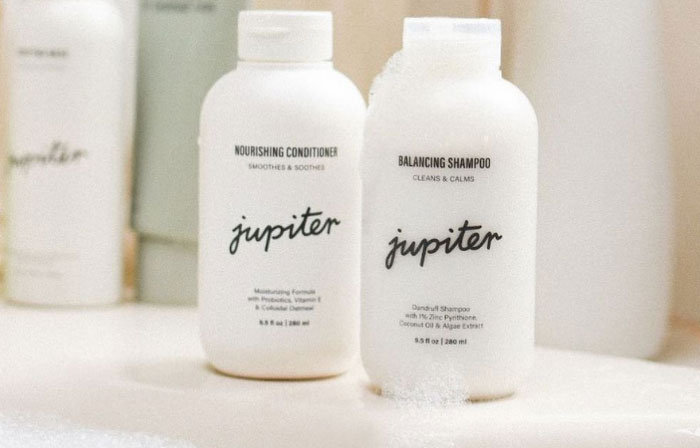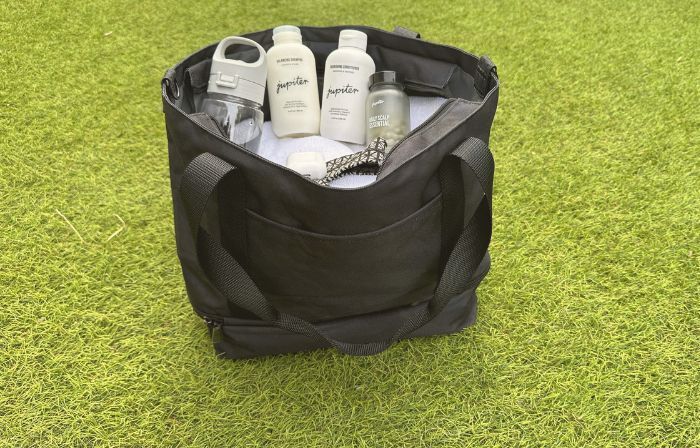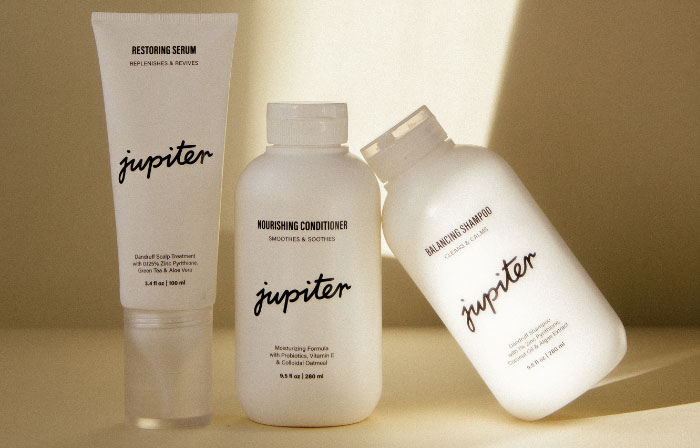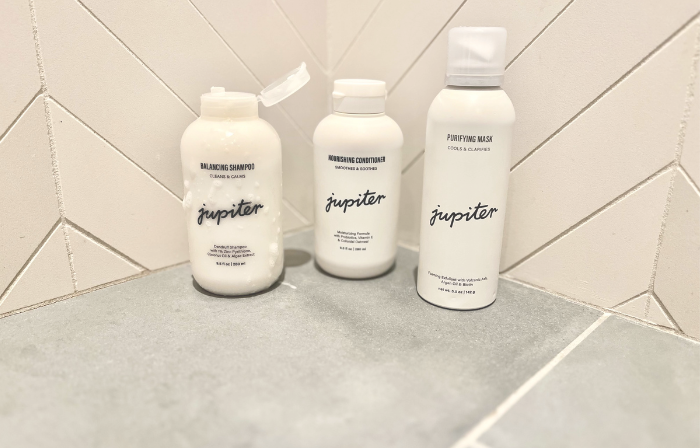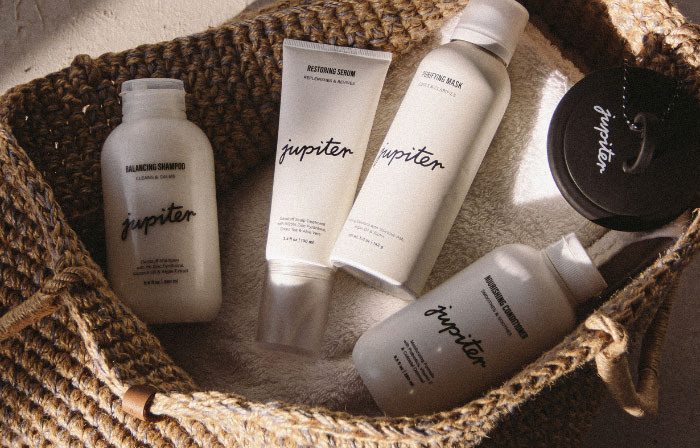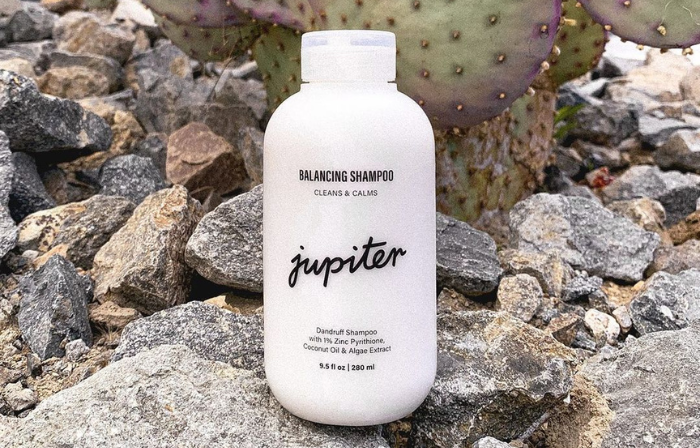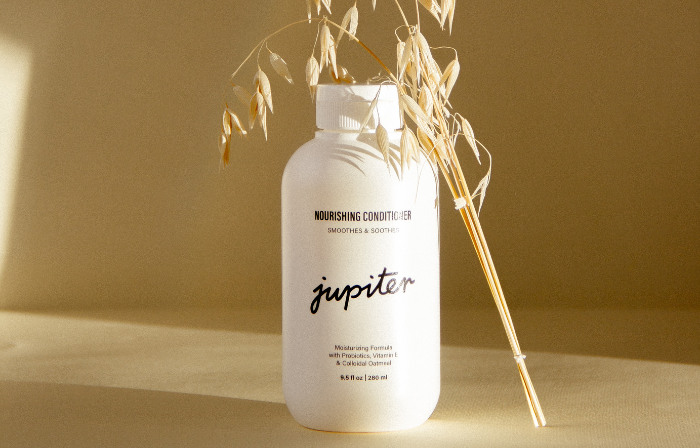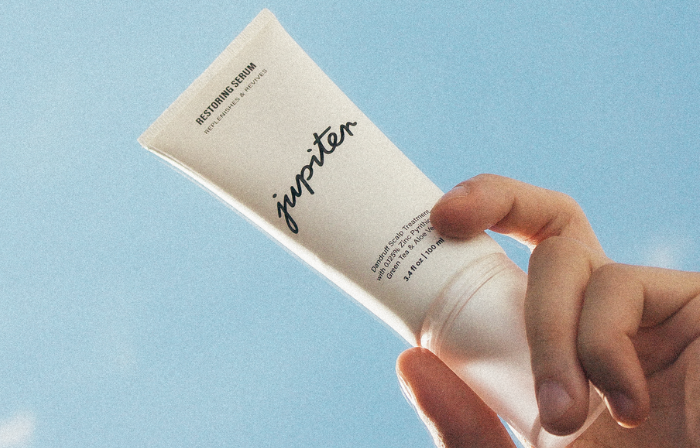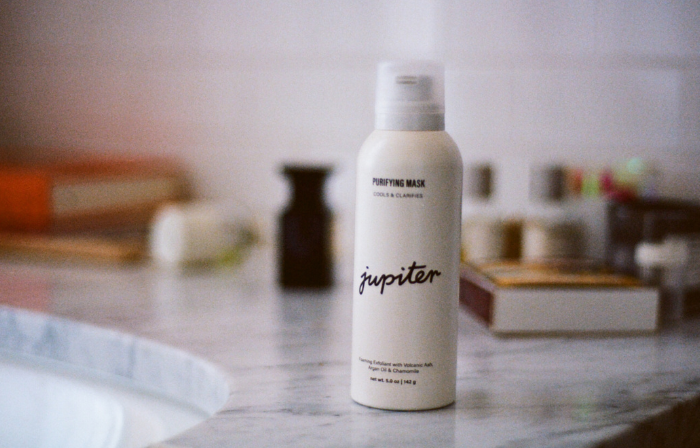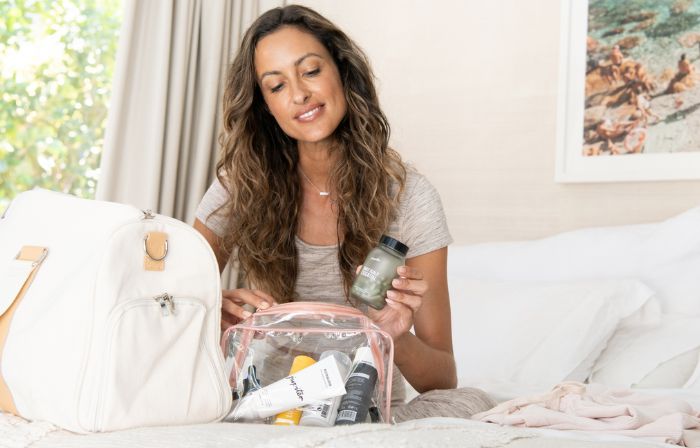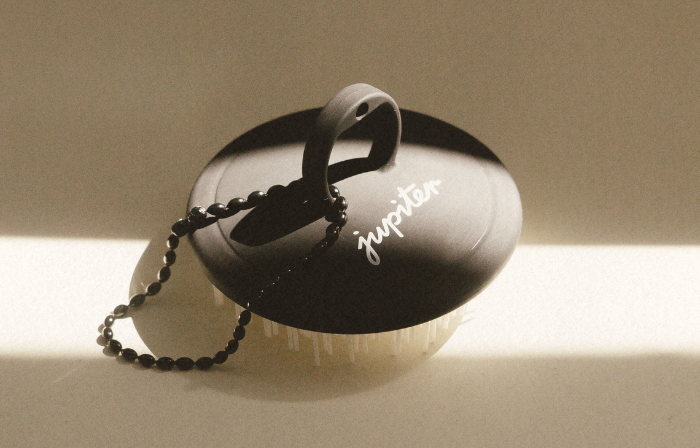Want to fix your flaky scalp for good? Then you’re going to need an antifungal shampoo.
You might be surprised to learn that dandruff is a fungus issue at its core. In particular, it involves a type of yeast called Malassezia growing out of control on the scalp. Malassezia plays a central role in the irritation that leads to flaking and itching on the scalp. Knocking this fungus back - and restoring a healthy, balanced scalp while promoting healthy looking hair - requires a proven antifungal treatment.
Let’s take a closer look at the link between Malassezia and dandruff, why antifungal medicated shampoos are so crucial to solving it, and what science says about the most effective fungus-fighting ingredients for scalp health.
The Microbiome & Health
Every healthy human body is an ecosystem populated by trillions of microbes, including bacteria, fungi, and viruses. Studies have found that a typical human microbiome includes more than 10,000 microbe species and accounts for 1 to 3 percent of a person’s body mass - between two and six pounds in a 200-pound adult!
The microbiome is essential to many functions of the body. In the digestive tract, microbes help us break down food and absorb nutrients that we wouldn’t be able to otherwise. They help produce vitamins and anti-inflammatory compounds that make our immune systems work better. Researchers are even starting to look into how the microbiome might impact our mental health.
The makeup and function of the microbiome varies in different parts of the body and can change over time due to our environment, diet, antibiotic medications, and other medical treatments. The human microbiome is a hot topic in medical research, as scientists are just starting to scratch the surface of all the roles microbes play in human health. We’re also just beginning to explore how we can treat health conditions by altering or enhancing microbe populations in our bodies.
The Microbiome & Dandruff
Fortunately the research is already very clear when it comes to dandruff: microbial imbalance is part of the problem. Scalps with dandruff have as much as ten times the amount of Malassezia fungus then healthy scalps carry.
Malassezia are lipophilic yeasts. Lipophilic means they like fat. They consume sebum, the natural moisturizing oil produced by the skin’s sebaceous glands to lubricate the hair follicle. Scalps with dandruff tend to have excess sebum, fueling Malassezia overgrowth. As Malassezia feed on sebum, they leave behind waste products on the skin. One of these is oleic acid, which causes scalp irritation in some people - and is likely more irritating when there is an excess amount.
Researchers believe the skin may respond to this irritation by speeding up its normal growth process to purge the irritants. This results in a spiraling and unhealthy buildup of dead skin cells along with Malassezia, sebum, and oleic acid. The growth cycle of skin cells in scalps with dandruff has been shown to be much more rapid than in healthy scalps.
Unfortunately, this natural process doesn’t offer relief - instead it leaves the scalp irritated, itchy and flaky - a dandruff hot spot. Damage can leave your scalp more prone to skin infection, while chronic dandruff can lead to noticeable hair loss from excessive scratching. Itching can leave you feeling distracted and tense. And of course, there’s those annoying white flakes.
Fortunately, clinical studies show that it’s quite possible to restore a healthy balance in the scalp microbiome through regular use of an antifungal treatment shampoo. This is a time-tested and proven way to treat dandruff and soothe a flaky, itchy scalp.
Flaking Caused by Psoriasis: Is Antifungal Treatment Necessary?
Many underlying factors can play a role in flaking of the scalp. These include more generalized skin conditions like psoriasis and eczema, dry scalp due to weather and air pollution, stress, genetic factors, hormone fluctuations, diet, and more.
It’s tough to pin down all the root causes that may be at play in one person’s dandruff problem. The good news is that root cause does not matter when it comes to effective dandruff treatments.
All scalps with dandruff are irritated. They all feature an overgrowth of Malassezia fungus and the unhealthy buildup of sebum and old skin cells. The microbiome of the skin is thought to play an important role in conditions like psoriasis and atopic dermatitis that can cause flaking.
In short, regardless of whether your flaking is linked to a skin condition like psoriasis, seborrheic dermatitis, inherited skin sensitivities, or stress (or all of the above), a medicated shampoo is your best bet for results. And of course, you should always work closely with your dermatologist to treat diagnosed skin conditions.
The Fungus-Fighting Shampoo Ingredient
While there are numerous antifungal ingredients that could be included in a paraben-free dandruff shampoo formula, there is one that volumes of scientific studies show to be extremely effective and safe. It’s called Zinc Pyrithione.
Zinc Pyrithione inhibits fungal growth through its fungistatic action - it keeps fungal cells from dividing and multiplying. It has antibacterial properties as well. This helps to tame Malassezia overgrowth and the spiraling skin damage that goes with it, creating a more balanced and healthy scalp plus moisturized hair.
Research has shown that, along with its antimicrobial powers, Zinc Pyrithione has a special staying power that makes it effective in dandruff shampoos. Even when the product is rinsed away, Zinc Pyrithione particles are able to remain on the scalp longer, where they continue to fight fungal infection between showers.
Zinc Pyrithione inhibits fungal growth through its fungistatic action - it keeps fungal cells from dividing and multiplying. It has antibacterial properties as well.
Other Helpful Antifungal Ingredients
Zinc Pyrithione is the workhorse of any effective dandruff shampoo - it’s a must-have active ingredient. However, there are many other ingredients with antifungal properties of their own, and can have additional benefits for skin, scalp, and hair. Here are a few things to look for on over-the-counter shampoo labels before you lather up:
Salicylic Acid
This ingredient may be familiar from acne spot treatments and cleansers. Salicylic acid has antifungal properties and is commonly used to treat tinea pedis (athlete’s foot) as well as warts and calluses. Along with its antimicrobial action, salicylic acid is also a keratolytic, meaning it softens and thins the outer surface of the skin to promote peeling and new growth. It also has anti-inflammatory and analgesic (pain-relieving) effects.
Piroctone Olamine
This ingredient is a proven antifungal agent that also helps to condition the hair. Piroctone olamine kills fungal cells by interfering with their energy metabolism. It also helps prevent the formation of oleic acid as a waste product when Malassezia yeast feed on sebum. This can help reduce scalp irritation and dandruff formation.
Lavender
Lavender essential oil is known for adding a soothing fragrance to natural personal care products and household cleansers. But it also has powerful antifungal and anti-inflammatory effects. Its calming psychological impacts shouldn’t be overlooked in dandruff care either, since stress can be a factor in symptom flare-ups. And of course, it smells amazing!
Spearmint
Spearmint essential oil also has proven antifungal properties, plus skin-protective antioxidants. It is known to improve circulation, which can help promote healthy growth of skin and hair, and it can help tame inflammation and discomfort. Its cool, invigorating aroma is another perk in scalp and hair care formulas.
Rosemary
Rosemary essential oil has many of the same benefits as spearmint, including antifungal properties and especially notable antioxidant effects. It’s also a beautiful, calming smell to add to your shower routine.
Coconut Oil
You might be surprised to learn that this skin-nourishing staple of natural skin and hair care can also help fight fungal infections. Coconut oil contains medium-chain fatty acids whose special composition makes them exceptional at deeply penetrating the skin to protect it, seal in moisture, and promote healing. There are other oils that may help dandruff too like emu oil, tea tree oil, and jojoba oil. These oils, along with aloe vera, can fight dryness and be great for our skin care.
The Final Word on Fungus & Flakes
An imbalanced microbiome plays a central role in the runaway process on your scalp that leads to dandruff. To fight dandruff side effects like flakes and itchiness, you need a dandruff treatment shampoo with the proven antifungal active ingredient Zinc Pyrithione.
Look for a supporting cast of other fungus-fighting ingredients on your anti-dandruff shampoo and conditioner label, too. Salicylic acid and piroctone olamine are proven antifungals. And luxurious natural ingredients like coconut oil and essential oils of rosemary, spearmint, and lavender may contribute to getting your microbiome back in balance, while making your shower experience a beautiful, nourishing part of your day.
